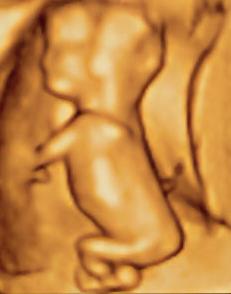Latest stem cell research takes Britain 'dangerously close to Planned Parenthood tragedy,' says Christian charity
A new clinical trial using foetal stem cells has been accused of taking Britain "dangerously close to the Planned Parenthood tragedy" by the CEO of a leading Christian charity.

The trials, starting in January, will inject foetal stem cells into babies while they are still in the womb. It is hoped they will be able to ease the symptoms of an incurable brittle bone disease.
However the stem cells used will be taken from aborted foetuses.
"This takes us dangerously close to the Planned Parenthood tragedy in the States, especially since these foetal stem cells are coming from aborted foetuses," said Nola Leach, CEO of CARE, a leading Christian public policy charity.
"This goes back to the Christian understanding that we must not do evil so good can result, however tempting it might be," Leach told Christian Today.
Brittle bone disease, or osteogenesis imperfecta, can be fatal as babies are born with multiple fractures. It affects one in every 25,000 births and even those who survive birth face up to 15 bone fractures a year as well as brittle teeth, impaired hearing and growth problems.
The test, which will be led in the UK by Great Ormond Street in the UK, hopes to improve conditions for children born with the disease.
"This is a very serious disease," said Professor Lyn Chitty of Great Ormond Street Hospital.
"Our objective is to see if in utero (in the womb) stem cell therapy can ameliorate the condition and the number of fractures" she told BBC News website.
However Leach said that the desire to cure was admirable but questioned the ethics behind the techniques because they involved destroying human embryos.
"Seeking to cure diseases is a noble and worthwhile pursuit but increasingly questionable techniques are being utilised in the name of scientific advancement.
"We always need to be asking the question whether such techniques are right, or whether because of what they actually involve they violate human dignity and therefore must be rejected as ethically and morally wrong."
Britain has now arrived at a place where the abortion of a foetus was deemed a good thing, Philippa Taylor, head of public policy at the Christian Medical Fellowship told Christian Today.
"Not only does this potential treatment hold real safety concerns and risks to the babies being 'treated', more importantly, it must surely make us question how we have got to a place where it is seen as good practice to abort a perfectly healthy baby in one part of a hospital then use its cells and tissue to (try to) treat an unborn baby with special needs in another ward of the same hospital?
"In good medical science the end does not justify the means," Taylor added. "It is possible to achieve great scientific and therapeutic advances within an ethical framework."











